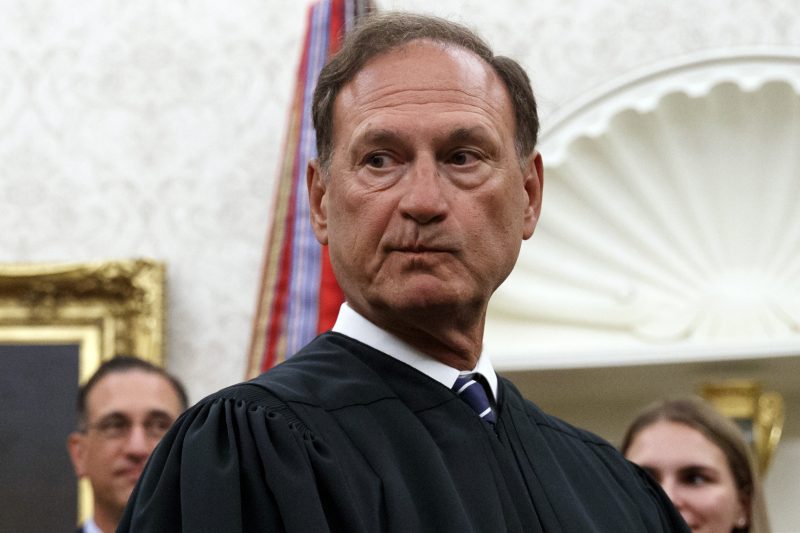In a recent turn of events, Supreme Court Justice Samuel Alito has raised eyebrows with his assertion that he alone can determine his own impartiality. This controversial statement was made during a recent interview where Alito was questioned about how he approaches cases that may have personal significance to him.
This assertion by Justice Alito brings into question the very nature of judicial impartiality and the role of a judge in upholding the principles of justice. The concept of impartiality is fundamental to the functioning of the judiciary, as it ensures that decisions are made based on the law and not on personal biases or preferences.
By claiming that he is the sole arbiter of his impartiality, Alito is essentially asserting that he can set aside his personal beliefs and biases at will, without any external checks or scrutiny. This view is not only concerning but also raises doubts about the integrity of the judicial process.
The impartiality of a judge is not a matter for the judge alone to decide. It is a fundamental requirement that should be upheld by all members of the judiciary to safeguard the integrity of the legal system. Judges are expected to be impartial and to apply the law fairly and without bias.
The statement made by Justice Alito underscores the importance of accountability and oversight in the judiciary. While judges are appointed to serve as impartial arbiters of the law, it is essential that there are mechanisms in place to ensure that they remain true to this principle.
It is crucial for judges to be held accountable for their actions and decisions, and for there to be transparency in how they approach cases and interpret the law. The independence of the judiciary is a cornerstone of democracy, but it should not be used as a shield to protect judges from scrutiny or criticism.
In conclusion, the assertion by Justice Alito that he is the ultimate judge of his own impartiality raises important questions about the role of the judiciary in upholding the principles of justice. Judicial impartiality is a critical component of the legal system, and judges must be held to account for their actions and decisions. Transparency, accountability, and oversight are essential to ensuring that the judiciary remains impartial and operates in the best interests of justice.

